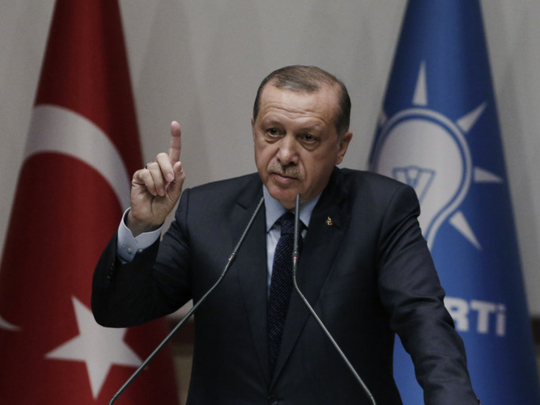
The referendum “Yes” vote gave Turkish President Recep Tayyip Erdogan sweeping powers, making him an all-powerful president. Following the referendum, Erdogan, 64, has become closer to achieving his dream before losing his political vivacity. The voting has shown a deeply polarised country, but Erdogan has prevailed.
Following this result, the Arab region is now encircled by three major powers: Iran led by Supreme Leader Ali Khamenei, Russia led by President Vladimir Putin and Turkey led by Erdogan.
This new situation will make the regional political game much more difficult, adding new conditions, alarming waves and worrying concerns to the myriad problems in the region. However, reverting to a presidential system is a matter that is determined by the people and their leaders, although the modern era is not likely to see the revival of the old system after the domination of new democracies. Even in Europe, there are many who call for the restoration of old empire models.
The question that arises here is: Can Erdogan, with his new powers, give up the list of old objectives that he had announced when he began his term two years ago, or can he forget his goals when he was prime minister in 2003?
These goals saved Turkey from sliding into a quagmire of debts, administrative corruption and economic deterioration, when Turkey was close to bankruptcy in 2006. Turkey has since then become one of the 20 prosperous nations (G20).
Turkey’s prosperous economy would not have been possible without the adoption of sound policy of zero problems with Arab and neighbouring Islamic countries. This approach was aimed at turning antagonisms into friendships, working on the development of domestic infrastructure to attract foreign investment. Within the same context, Turkey issued a package of flexible laws and concessional terms while forging a new image of modern Turkey, such as the development of the new airways and tourism industry, and even dubbing its popular social drama series into Arabic.
Following the referendum, political observers predict that some politicians will take advantage of the new situation to achieve bogus goals. Turkey won’t allow anyone to use its name and position to fulfil their personal purposes and serve their own interests. The question here is will Turkey truly evolve into a beacon of knowledge and innovation as it is supposed to be, or will it retreat?
Despite all optimism about a better future for the Turkish people, it is being felt that post-referendum Turkey is more likely to repeat the same mistakes committed by the Islamist political parties in the Arab region when they assumed power. For example, the Muslim Brotherhood, which came to power after the January 25 Revolution in 2011 in Egypt, excluded other parties from the political scene. This was the same scenario when the Islamist Al Nahda party came to power in Tunisia after the December 17 revolution in 2010.
Following the referendum, Turkey may tread a similar path or it could emerge a stronger nation.
Ironically, the Justice and Development Party (Islamic) has reached its peak in the past years (just like national parties, whether leftist and rightist, under the umbrella of a secular state that was founded by Mustafa Kemal Ataturk). Erdogan’s party has turned the table at a time when it should preserve secularism for being the ideal political model that allows all parties to work freely without any obstacle or bias.
It appears that the AKP may not be too keen to share power and state administration with other parties in Turkey. Events in recent months and weeks have pointed in that direction. This has prompted those concerned not to be too optimistic about the success of the new approach by the Turkish state. Observers believe that the new endeavour by Erdogan and his party will end up placing Turkey among the world’s totalitarian regimes. Only time will tell.
Mohammad Hassan Al Harbi is a renowned columnist and author whose writings cover various fields ranging from media studies to education.











